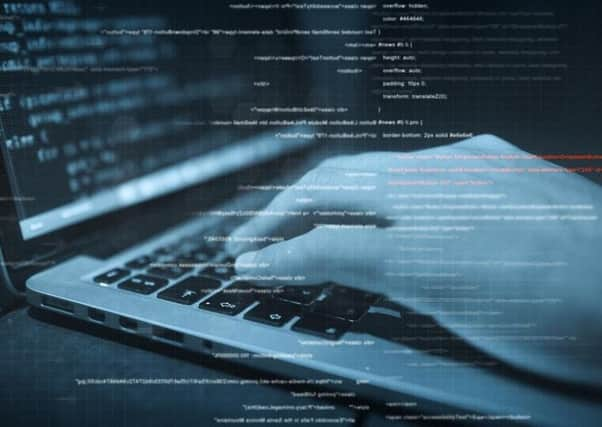Cybercrime costs in the region of £100m per year in N. Ireland


In modern life in almost everything we do, we use the internet. My favorite explanation of the internet was described by actor, Stephen Fry, who likened it to a ‘big city,’ which makes sense if you think about it.
Every day we go there for entertainment on services like Netflix, socialising through social networks, shopping on sites such as Amazon and eBay and as the internet is vital to most modern businesses, we go there to work. However, when it comes to security in our online world we are still alarmingly lax especially when compared to how carefully we protect our home and its contents.
Let’s think about how we look after our physical valuables.
Advertisement
Hide AdAdvertisement
Hide AdThe very first thing we do to keep them safe is shut out unwanted access to our homes by locking our doors. Why do we do this? We don’t know specifically if our homes will be targeted for burglary, but we do it because we know that an unlocked door leaves us vulnerable.
To further secure them, we lock them safely away and maybe only allow certain individuals to access these valuables.
CONDUCTING OUR
SECURITY ONLINE
How can this translate to how we conduct ourselves online?
Every day people give away ‘Personal Information,’ which could potentially be worth thousands of pounds to cyber criminals, without considering the consequences. Over 70 per cent of all credit card fraud happens when the criminal doesn’t even have the actual credit card. It happens through online payments, telephone or e-mail scams.
And in Ireland, cybercrime is double the global levels with four out of 10 organisations being affected.
Advertisement
Hide AdAdvertisement
Hide AdIn N. Ireland alone cybercrime costs the province £100m per year.
So what are cyber criminals doing with all this stolen Personal Information?
Your name and address can be used to fraudulently apply for loans or credit cards under the victim’s name.
Healthcare information can be, potentially, used to buy prescription drugs.
Advertisement
Hide AdAdvertisement
Hide AdStolen email credentials can be used to access online accounts.
Many of our physical items are insured and replaced; credit cards numbers can be changed, all this can be done in a relatively short space of time, but resolving financial and credit problems associated with identity theft can take, in extreme cases, more than six months.
A huge part of online life is social media. It’s extremely accessible; it keeps us up to date with what’s going on and in many cases, helps people reinvent themselves, but at what cost to privacy and security?
I help coach juniors aged six to 14, at a local sports club and I also run the social media page. I regularly post information about competitors and it acts as a social hub for parents and club members. The page has privacy settings applied, meaning that only people who have been vetted have access to the page and the access is regularly reviewed. If this was a physical space and we considered the real-world security implications of safe guarding the club members, we would question if access should be given to anyone unknown to the club. However, I increasingly come across sports club social media pages that post information and photos of club members that are there for public viewing.
Advertisement
Hide AdAdvertisement
Hide AdEven when it comes to protecting the most vulnerable in society, security is still our last consideration.
So how do we apply our sense of real world security to the virtual world?
Let’s recap on the measures most of us take as standard practice to secure our valuables. We secured our outer defenses by locking our doors; we then safely secured our valuables and we may only give certain people access. What if we applied these principles to our online activities?
What if we secured our outer defenses by ensuring we have strong passwords on our devices leaving ourselves less vulnerable?
SHARE INFORMATION ONLY WITH PEOPLE WE TRUST
Advertisement
Hide AdAdvertisement
Hide AdWhat if we safely secured our Personal Information by only using it when we really had to, making sure when we do use it it’s in a secure safe manner in trusted sites?
What if we were more careful about who has access our Personal Information by ensuring we only share it with people we know and trust?
Even with its flaws there’s no doubt that the internet is viewed as one of the greatest inventions of modern times. Nevertheless it’s important to remember that the internet is a tool and what do we do when we normally use tools?
We take precautionary steps to assure the correct use and avoid losing an eye.
Advertisement
Hide AdAdvertisement
Hide AdNow, I’m not saying put on a tool belt and hard hat before you power up your machine or unlock your phone, what I am saying is, we must focus on developing a greater sense of online awareness and best practises to help us navigate our virtual world.
We use the internet for almost everything we do, so it’s time to buckle-up and get savy.